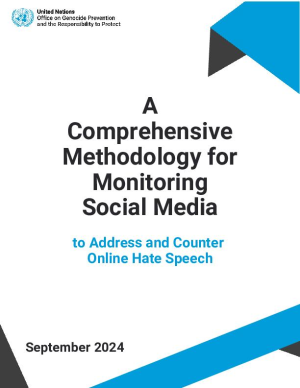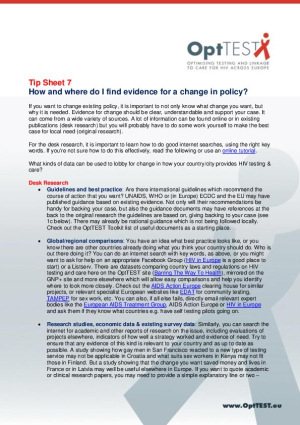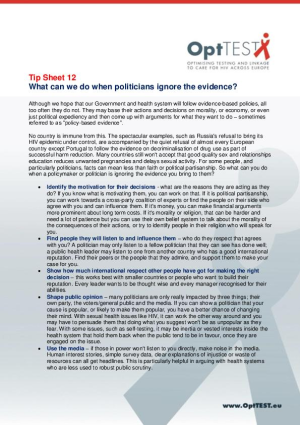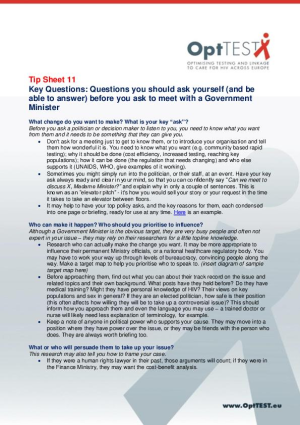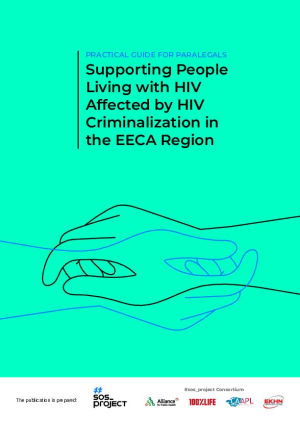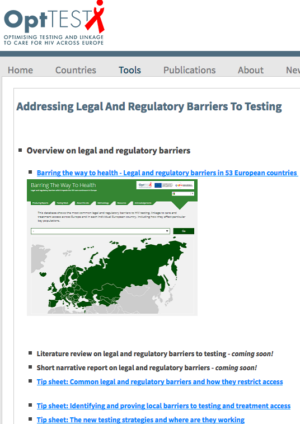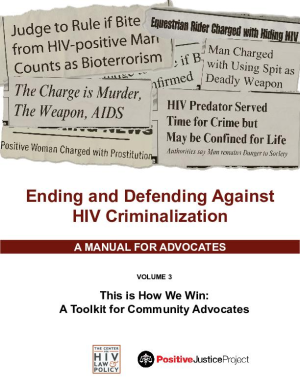Background to prosecution and the law
Published by the Terrence Higgins Trust, these pages gives you information on what you should do if you’ve been accused of HIV or sexually transmitted infection transmission, along with the names and coordinates of organisations who can help support you in the United Kingdom and background information on prosecution and the law.
The section covers:
- How the law works.
- When prosecutions succeed.
- When prosecutions fail.
- How do you prove it?
- I've been accused.
- I want to complain.
- I've been asked to be a witness.
- Views on prosecutions.
A comprehensive methodology for monitoring social media to address and counter online hate speech
"A Comprehensive Methodology for Monitoring Social Media to Address and Counter Online Hate Speech” aims to set up a systematic and common approach for monitoring hate speech in full respect of international human rights law and standards and based on the UN Strategy and Plan of Action on Hate Speech. It is envisaged to help the work of various UN entities, and all relevant stakeholders engaged in tackling hate speech, including by providing examples on how to do this practically. It also provides an opportunity to reflect on what areas would benefit for further research and action to advance the fight against online hate speech globally.
OptTEST Tip sheet 7 – How and where do I find evidence for a change in policy?
Explores how to change existing policy by presenting clear and understandable evidence to support advocacy.
OptTEST Tip sheet 12 – What can we do when politicians ignore the evidence?
Examples of strategies to resist or challenge poor decision making.
OptTEST Tip sheet 11 – Key Questions: Questions you should ask yourself (and be able to answer) before you ask to meet with a Government Minister
Document exploring how to prepare meeting with government officials.
PRACTICAL GUIDE FOR PARALEGALS: Supporting People Living with HIV Affected by HIV Criminalization in the EECA Region
The purpose of this guide is to raise the legal awareness of activists from the community of people living with HIV who provide paralegal assistance to people affected by the criminalisation of HIV. This guide is also recommended for use by activists from key populations - people who use drugs, sex workers, and representatives of the LGBT community. This manual reflects the experience of the HIV-positive community members, as well as their partners and associates from across Eastern Europe and Central Asia (EECA), in providing direct assistance to HIV-positive people affected by discriminatory HIV-specific laws and the decriminalisation of HIV.
HIV Is not a Crime – Modernize Nevada’s HIV Criminal Laws
Talking points to help activists advocating against Nevada's HIV Criminal Laws.
Body Politics: The Criminalisation of Sexuality and reproduction – A campaigning Toolkit
Provides concrete campaigning techniques such as mapping stakeholder participation and power, identifying advocacy targets, and building capacity
OptTEST: Addressing Legal And Regulatory Barriers To Testing
This EU-funded project on improving access to testing and treatment continuum includes some detailed and informative HIV criminalisation case studies (Netherlands, Denmark and England & Wales) as well as nine advocacy tip sheets such as 'Simple principles for effective campaigning', 'Getting the evidence for policy changes' and 'What can we do when politicians ignore the evidence?'
Ending and Defending Against HIV Criminalization: A manual for advocates. Vol 3: This is how we win. A Toolkit for community Advocates
Contains numerous criminalisation documents (also listed separately on this site), including Ten things anyone can do to help end HIV criminalization, How a Bill becomes a law, State-level legislative advocacy cheat sheet, How to talk about HIV criminalization with elected officials, media and others.

